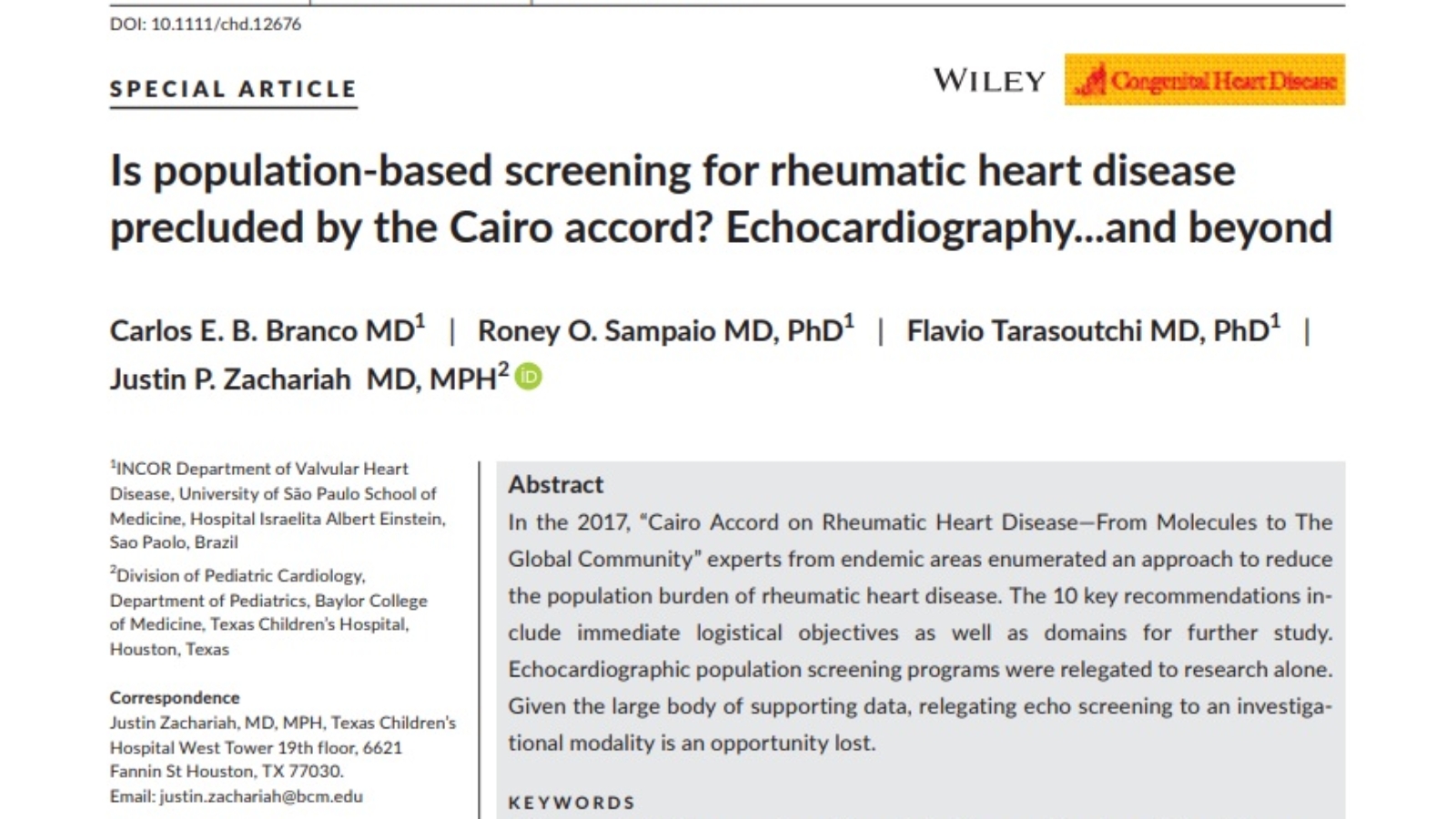The recently promulgated 2017 “Cairo Accord on Rheumatic Heart Disease—From Molecules to The Global Community” was a land‐ mark in global cardiology wherein stakeholders from low and mid‐ dle per capita income countries (LMIC) set international priorities for a disease largely affecting their own populations, in lieu of di‐ rectives from high income country experts.1 The Accord addresses the consequences of rheumatic fever (RF) which affects the most
disadvantaged LMIC citizens who are often impoverished, living in overcrowded circumstances, with marginal health literacy and inad‐equate health care access. 2 While the Accord does not give detailed arguments for the recommendations endorsed, on balanced reading, invested stakeholders may fret over a possible opportunity lost.


Add a Comment